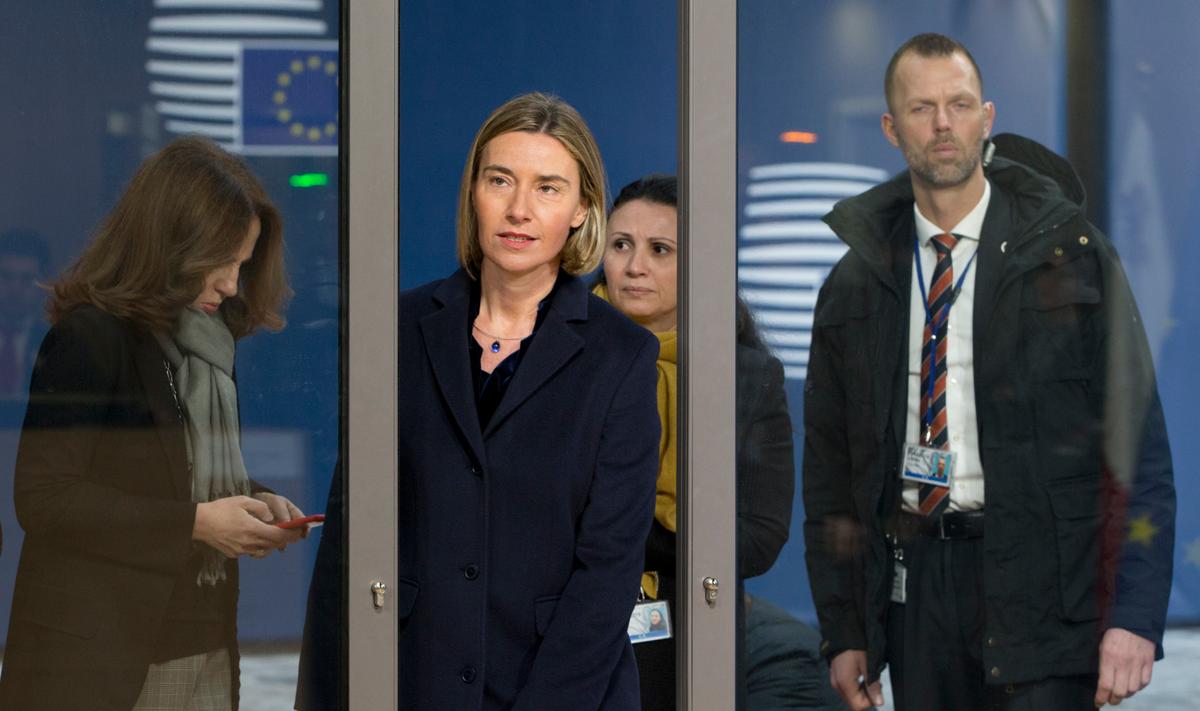BRUSSELS—The European Union’s top diplomats vowed Monday to uphold sanctions against Russia for destabilizing conflict-torn Ukraine.
Determined to wait no longer for a clear message from Washington, EU foreign ministers said their economic sanctions must remain in place until Russian President Vladimir Putin respects his promise to work for a cease-fire in eastern Ukraine and ensure that heavy weapons are withdrawn from border areas.
EU foreign policy chief Federica Mogherini underlined that the EU will never recognize Russia’s 2014 annexation of the Crimean Peninsula, and insisted all sides must respect the Minsk peace agreement aimed at ending the fighting in eastern Ukraine between government forces and Russia-backed separatists.
“I cannot say where the U.S. administration stands on this, but I can say where the Europeans stand on this,” Mogherini said.
Fighting has escalated over the past week in eastern Ukraine, killing at least 36 people, including civilians, and wounding dozens. More than 9,800 people have died since the war began in 2014.






